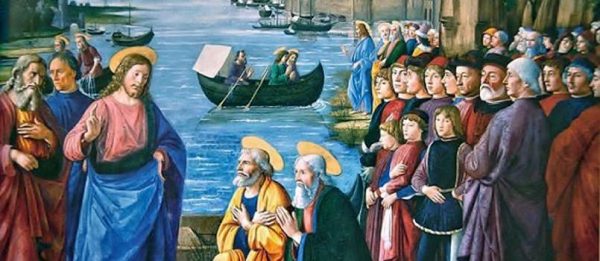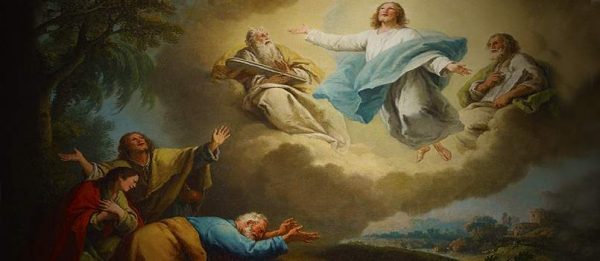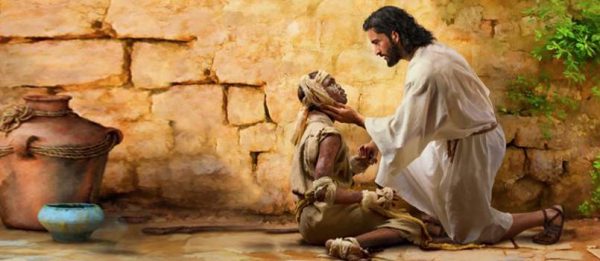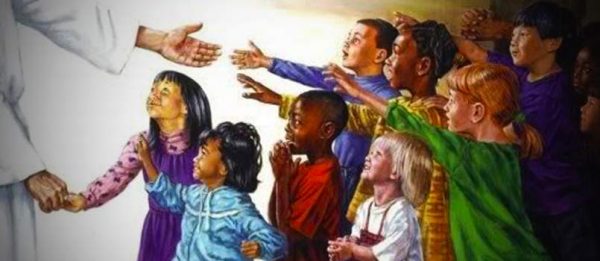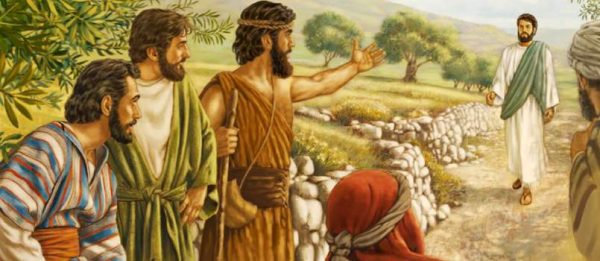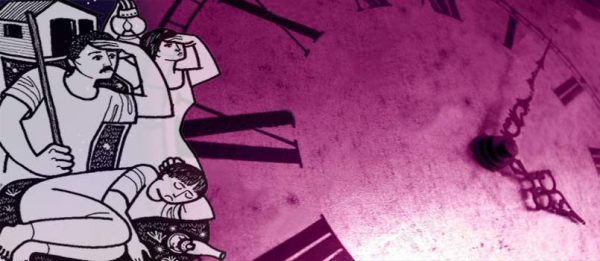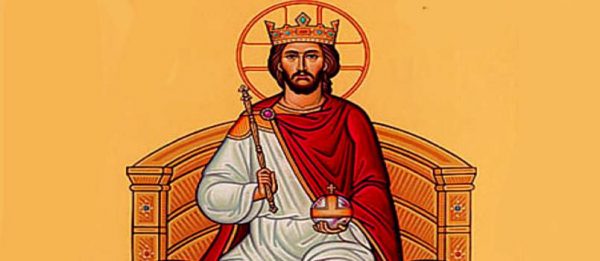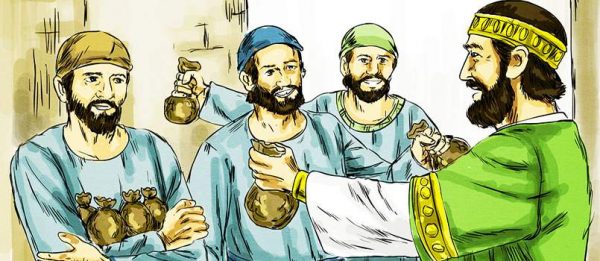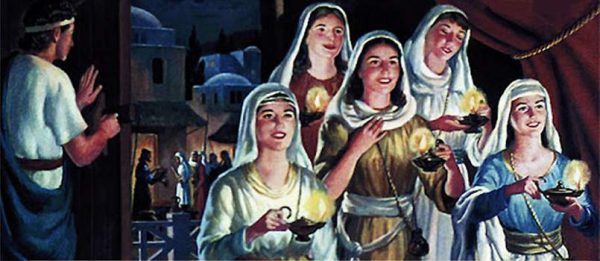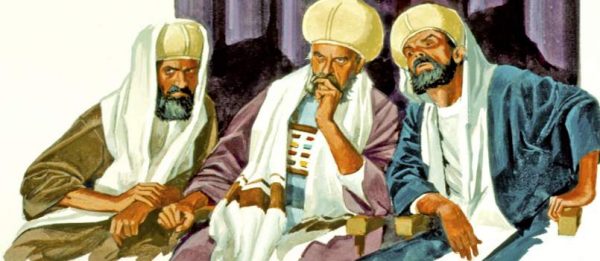1,067 total views
The Lord Is My Chef Sunday Recipe, Wk. XXIV-C, 11 September 2016
Exodus 32:7-11,13-14//1Timothy 1:12-17//Luke 15:1-32
The very long gospel account we have just heard today is the “heart” of St. Luke’s Gospel which is also known as the “Gospel of Mercy.” Aside from being in the middle of the gospel, Luke 15 is rightly its heart because it reveals to us the very mystery of the heart of God, filled with Fatherly love expressed in mercy. From the three parables assembled in that chapter by St. Luke, we find two characteristics of God’s mercy: it is both uplifting and joyful. Likewise we find in these parables that mercy is not just an emotion but an action of love as exemplified by Jesus who is the face of the Father’s mercy (misericordiae vultus) that “Tax collectors and sinners were all drawing near to listen to Jesus.”(Lk.15:1)
The Father’s mercy is uplifting because He is always one with the suffering and the poor. That is the literal meaning of compassion, to suffer with or cum patior; God cannot suffer that is why He became human like us in Jesus Christ in order to suffer with us. In the Old Testament, one of the words used for mercy is “hesed” which is not merely a sentiment of pity but a fatherly bearing moved by active generosity and love. It is the coming together of “mercy of the heart” and “mercy of the hands” wherein God did not merely see our plight but did something in sending us Jesus Christ. Let us have a little illustration: when we see a beggar on the street, we give alms. We say, “nakakaawa kasi” (pitiful) which is mercy of the heart because our heart was stirred or moved deeply by suffering (i.e., misericordia, Latin for mercy from “miseor” or to stir, and “cor” for heart). Being moved in the heart is not enough because there is still a gap between us and those in suffering; but, the moment we stoop down to help the beggar arise, when we clothe him and feed him like what St. Mother Teresa did in Kolkuta, India, then, it becomes the uplifting mercy by Jesus where mercy of the heart and mercy of the hands blend together. Notice how whenever Jesus would heal the sick, there is always the physical contact like holding up the hand of Peter’s mother-in-law. And after each healing, there is always the forgiveness of sins in order to uplift and restore to the previous dignity and status of the contrite sinner. Unlike us humans, we would rather trample down the unfaithful and sinful, capitalizing on others’ sins, failures, and shortcomings. In His uplifting mercy, Jesus Christ seems to feel so much what is to be a sinner, to be sick, or simply be down in the pits where He displays His power in what humans consider as weakness like forgiving and understanding, being kind and giving everyone a chance to change. This is the whole point of that episode on Mt. Sinai when Moses pleaded with God to withhold His anger after the Israelites have worshipped a golden calf. God showed His strength and power in being merciful rather than being angry. In the parables, Jesus first shows us the value we put on lost things that we would spend so much energy and time to search for them; how much more then in the third parable when we deal with lost persons? Notice that when we degrade people, together we sink with them; but, when we uplift people, we also rise further.
The second distinctive and surprising, even astonishing, characteristic of God’s mercy is its being joyful. It is the most difficult to comprehend and even imitate in Christ as His disciples. A lot often, we associate mercy with sad or sober feelings bordering from the good-natured sympathy to the melodramatic extremities of “makabagbag-damdamin.” In all three parables, notice how Jesus would always end each with a call to a celebration. Real mercy always leads to joy because aside from the recovery of somebody who had been lost, there is also the restoration of relationships that signals a continuous series of new beginnings and life! Christianity spread this far and wide among us up to this time because of the countless sinners who have experienced God’s joyful mercy that they could not resist spreading the joy of the Good News. Most notable among them was St. Paul who gives us a testimony in our second reading today of how from being the “foremost” sinner he had become the “foremost” missionary of the Gospel to remind every sinner of God’s mercy. Joy is the truest sign of mercy and being forgiven; without joy, we get stuck in our guilt feelings and past, becoming resentful until slowly we lose our sense of God, then, we lose everything. This joy in being merciful is a quality of God missed by people then and now due to casuistry or too much attention on the sins and punishments. The Old Testament teems with many instances that show joyful mercy of God like in the Book of Ezekiel where He says “I do not rejoice over the death of the wicked person but (I rejoice) in his desisting from his wickedness and living (Ez.33:11).” Micah on the other hand declares that God “takes pride in having mercy (Mic.7:18)” which means “God takes pleasure in being merciful.”
Do we experience this kind of mercy in our family and community, a mercy that uplifts the sinner and most of all, a mercy borne out of joy that thereby leads into more joys?
The key in experiencing and sharing the joyful mercy of God is in how we see ourselves in relation with God. Notice in the third parable how the two sons regarded themselves as servants to their father. The prodigal son wanted to tell his father in their reunion “to treat me like one of your hired workers” while his elder brother stressed in protest while outside their house how “all these years I served you and not once did I disobey your orders; yet you never gave me even a young goat to feast on with my friends.” (Lk.15:19,29) We find the clincher on the part of the Father who addressed both as “my son.” As modern disciples of Jesus Christ and “face of the merciful Father”, we must reclaim anew our being children of God. We are all forgiven sinners and beloved children of the Father – that’s who we really are! As forgiven sinners and beloved children of the Father, we have to be attuned to the attitude of God Who’s main concern is to search and save those lost so that we could all be one again. Let us not be like the Pharisees and scribes who resented so much, even scorned the sinners not only because they would come to Jesus but most of all because they felt so privileged before God. They felt like the elder son who thought they deserved something better for being so faithful to God because they have not disobeyed any of His laws. We cannot boast of anything with God because He is not a master who keeps tabs of our accounts but a Father full of love and mercy. Like the Gospel last Sunday, it is not where we sit that matters but where we stand, of being true to our identity and calling before God. Two Sundays ago, Jesus reminded us that at the end of this life’s journey, it is only God and I remaining. And the more we desire to be with God, the more we must be joyful like Him in finding our lost loved ones. After all, we are brothers and sisters in Him our Father. Amen.
Fr. Nicanor F. Lalog II
Parokya ni San Juan Apostol at Ebanghelista
Gov. F. Halili Ave., Bagbaguin, Sta. Maria, Bulacan.















